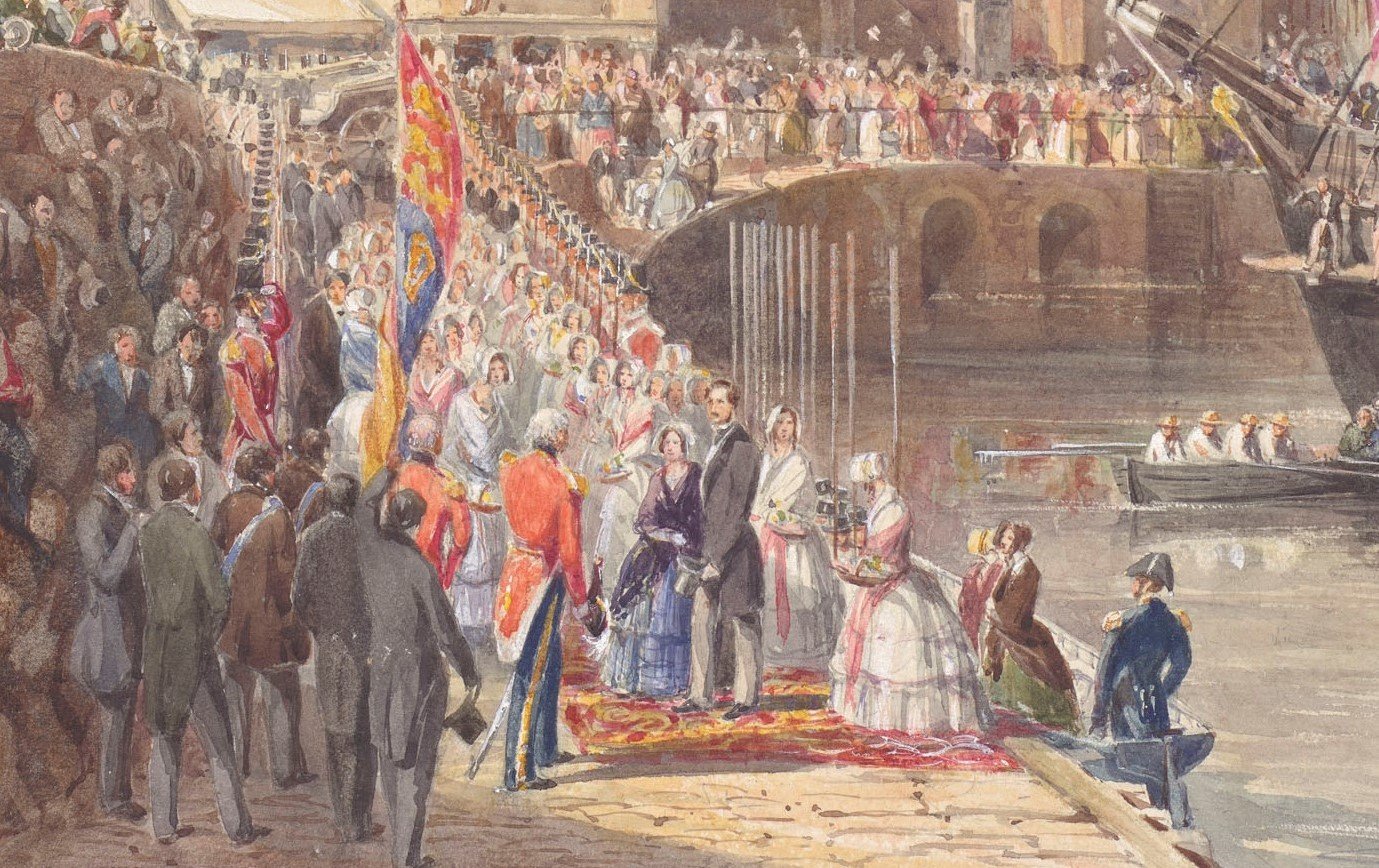
Family Memories
Alessandro Nasini, Curator of Photographs, explores Victoria and Albert’s use of both watercolour and photography for documenting important scenes of their lives
Queen Victoria and Prince Albert, like many people, enjoyed recording special moments and documenting their family – particularly their growing children – in various ways, as this watercolour by Eugenio Agneni demonstrates. It captures a colourful and action-packed scene from the sixth birthday party of Prince Leopold, Victoria and Albert’s youngest son, which was held at Buckingham Palace on 7th April 1859.
The royal couple also recorded the spaces they shared in the various royal residences, their homes, and often took advantage of two different art forms to do so: watercolour and photography. They don’t seem to have preferred one medium over the other, as both were used at the same time, often covering the same subjects.
Queen Victoria’s Christmas presents table at Windsor Castle in 1850, for example, was recorded through this watercolour by James Roberts. Her Christmas table of 1857, however, was photographed at Windsor Castle on Christmas Eve by Ernst Becker.
One might think that the different dates indicate that this represents a switch from using watercolour to photography – as photography (the official birth of which only took place in 1839) underwent significant technological advancements in the 1850s. However, while Queen Victoria chose to have her birthday table photographed at Osborne in 1859, she commissioned Roberts to record in watercolour the one prepared for her in 1861.
Interestingly, the Queen’s Birthday Table of 1858 is a hand-coloured photograph, which is a sort of hybrid: a photograph overpainted with watercolour and bodycolour.
This is one of many examples in the Royal Collection of hand-coloured photographs. As well as knowing who the original photographer was, for some of these photographs we also know the identity of the artist responsible for the colouring. For example, according to Queen Victoria’s financial accounts, James Roberts himself was paid for colouring photographs of interiors of rooms at Buckingham Palace and Windsor.
However, photographs were occasionally painted by the sitters or commissioners themselves, including the queen: Victoria recorded in her journal that on the 27th May 1854 she had been ‘[m]uch occupied in painting photographs’.
This hand-coloured photograph by Leonida Caldesi shows Prince Arthur and Prince Leopold in costumes ‘of the sons of Henry IV of England’, according to its caption, which they wore at Leopold's birthday ball in 1859. Two of their sisters, Princess Louise and Princess Helena, also attended the ball wearing ‘Swiss costumes’ and, like their brothers, they were photographed by Caldesi.
The costumes and their colours are recorded accurately through both media: the hand-painted photographs by Caldesi and the watercolour by Agneni (you can find the two princesses on the left, and one of them is dancing with either Arthur or Leopold).
The latter also captures the fun and high level of energy – as well as the occasional tumble and some sense of confusion – that would have accompanied a ball held for children aged between six and fourteen!







